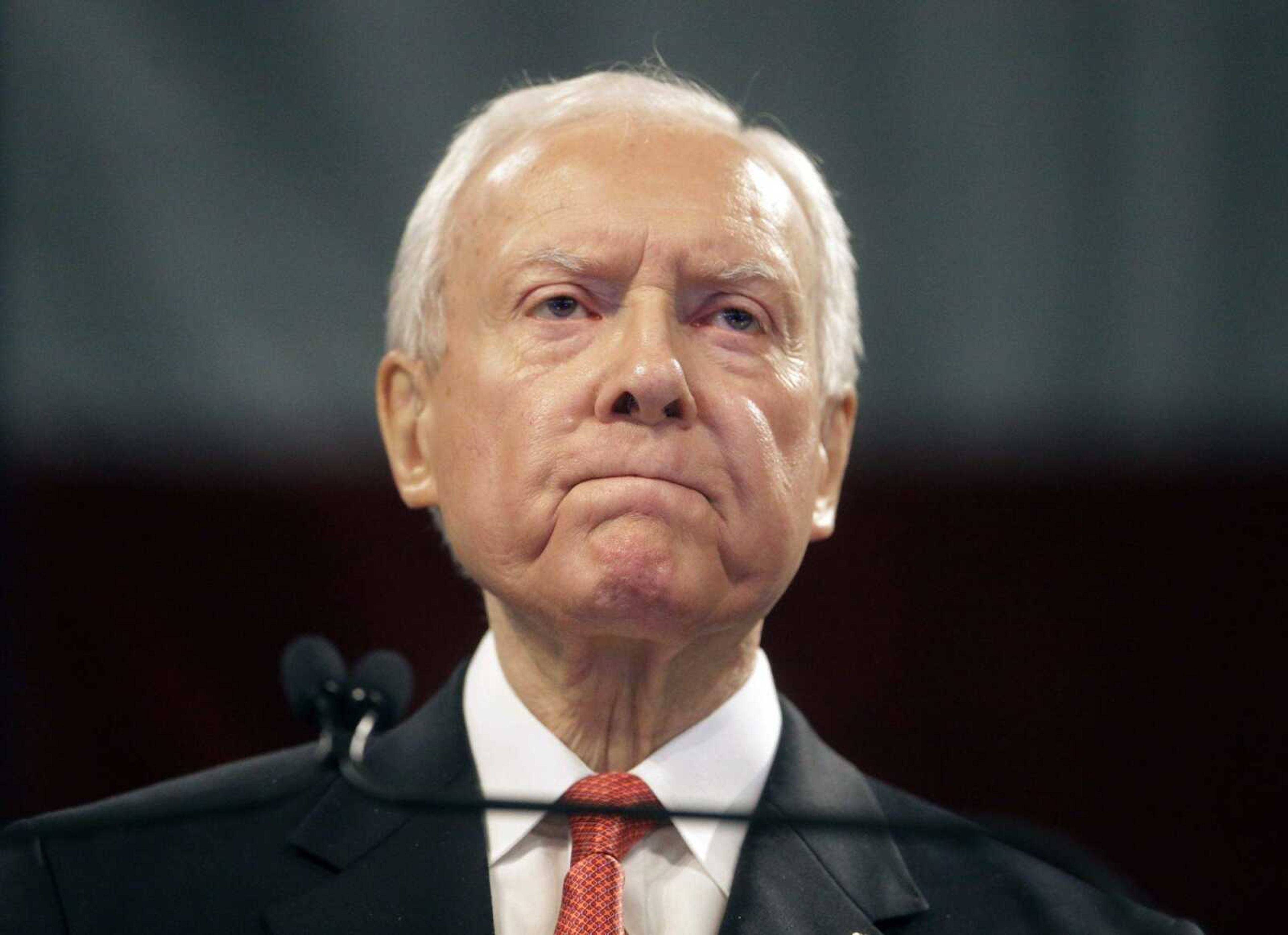SALT LAKE CITY -- Orrin Hatch's decision to retire from the Senate after four decades lets the Utah Republican walk away at the height of his power after helping to push through an overhaul of the tax code and persuading President Donald Trump to downsize two national monuments.
Retirement also preserves the 83-year-old's legacy by allowing him to avoid a bruising re-election battle that would have broken his promise not to seek an eighth term.
Hatch first won election to the Senate in 1976, when he made a case to voters that three-term Democrat Frank Moss had been in office too long. Hatch went on to become one of the longest-serving senators in U.S. history, repeatedly telling voters that his experience made him all the more effective.
"Why would Utah give up its clout and power," Hatch asked during his 2000 re-election campaign, "just because someone says term limits are a good thing?"
He flexed his political muscle during the last two years, serving as chairman of the powerful Senate Finance Committee and steering passage of the tax overhaul that was signed into law in December. He also led an effort to persuade Trump to take the rare step of scaling back the national monuments, which Utah's Republican leaders complained had locked up too much land.
Hatch's departure from the political stage opens the door for frequent Trump critic Mitt Romney, who has expressed interest in Hatch's seat.
Romney, the former Republican presidential candidate and Massachusetts governor, now lives in Utah, where he's fondly regarded as the man who helped turn around Salt Lake City's scandal-plagued 2002 Winter Olympics. He's also one of the most famous and respected Mormons in the world -- a big deal in a state where 60 percent of residents belong to The Church of Jesus Christ of Latter-day Saints.
Hatch aligned himself with Trump despite the real estate mogul's lukewarm reception among Utah Mormons and conservatives who place a premium on civility and were turned off by the president's brash demeanor, name-calling and his comments about women and minorities.
In 2016, Hatch endorsed Trump and later called him "an extraordinary man" and "one of the best I've served under." By ushering through tax reform, Hatch helped deliver the president's first major legislative achievement.
As the chairman of the Senate Judiciary Committee, he confirmed nearly 1,900 federal judges and was at the center of many of the biggest confirmation fights, including President Barack Obama's blocked Supreme Court nominee, Merrick Garland, and Clarence Thomas' Supreme Court confirmation hearings in 1991.
Hatch announced his decision Tuesday by saying he's always been a fighter, "but every good fighter knows when to hang up the gloves."
Connect with the Southeast Missourian Newsroom:
For corrections to this story or other insights for the editor, click here. To submit a letter to the editor, click here. To learn about the Southeast Missourian’s AI Policy, click here.







